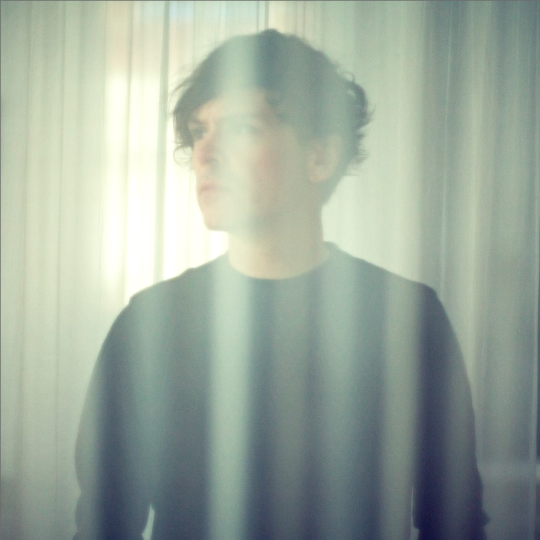
Art has a funny way of transporting you to places you have never experienced before. Like a portal into an unknown world, a well-done song or illustration can make you feel and contemplate things you have never even imagined.
With us never stepping foot in the mysterious town of Tangier, Virginia, Canadian musician, singer-songwriter, author, producer, and composer Alex Henry Foster has made us feel like we’re right there alongside him in his newest post-rock single “The Hunter (By The Seaside Window).”
Sounding like something out of an M. Night Shyamalan movie, Foster (best known as the frontman of Juno Awards nominee Post-Rock / Noise band Your Favorite Enemies) has constructed an ominous and symbolic tale of an unrelenting hunter out on the prowl.
“‘The Hunter (By the Seaside Window)’ emerged from a 30-minute jam that would later be released as 15 minutes of a noisy, out-of-breath and tortured kind of dark, spiritual, emotive, and redemptive sonic journey,” explains Foster. “The lyrics are part of a series of texts that I wrote in my new home in the middle of the Virginia Highlands after completing a two-year exile in the city of Tangier. The symbolistic elements are numerous but are fundamentally the most honest I’ve been able to be regarding my lifelong struggles with depression and anxiety.”
Foster went on to explain his bold new single taken from his forthcoming eight-track LP Windows In The Sky saying:
“The hunter is the prey, as much as the prey stands as the hunter, both followed by the shadows of their own desperation and disillusions, both trying to escape reality and capture mirages. You can feel the conflict between denial and admission. You can see the traces of life following daydreaming echoes, offset reflections of similar images juxtaposing affective desperation and unwillingness to let go of their own deceptive creations. You can slowly figure out tiny pieces of the prey’s wounded agony, afflicted by a hunter renouncing to his own merciful innocence. The battle raging inside oneself, craving what we so easily left behind, sometimes still bleeding from what has been taken away from us. Memories, like spring, cannot be revived, and disheartened will makes a redemptive seaside unreachable.
Living in the mountains offered me a different perspective on the cycle of life, its appreciation and its needs for respect. I had to learn what it meant for real hunters to honor the spirit of their prey and was able to imagine the relationship established and maintained with their environment, the soul of the animals feeding and covering their own. There’s nothing noble in taking a life, but ‘forgiveness is a gift much like love carries you away.’ And those words offered a new dimension to the song’s otherwise fatalistic tone.
‘I’ve closed my eyes in peaceful glimpses of pure white sky’ represents a moment of lucidity and inner peace as we emotionally lie down, accepting our defeat in a moment when defeat doesn’t mean anything - doesn’t matter anymore - allowing our spirit to see what life could have been, what loved ones could have looked like, what children would have called you… You can feel the warm affection of home, the inspiring notion of having found your purpose upon finding your people, but you are lying down, damaged and powerless, worlds away from that place you have always prayed for but never had enough faith in to believe it was yours to dismiss. You are a footstep away, always have been so close…
The hunter is the light, the prey is the darkness falling in the hands of a new morning. You feel the same, but everything is different somehow. You stand up. You hear the sound of a gun that has been fired. The ghosts that kept on haunting you are waiting outside for your daily anguish to begin. It’s hard to breathe. The fight against yourself is one that is as bright as the dawn. You’re breathing in, you’re breathing out… and just like that, everything starts once again.
And the hunter keeps on coming back as the song reflects on the symbiotic notion of inner struggles feeding the growing illness of the relationship between the different entities we kept on feeding within oneself, as a sort of an out-of-step addiction to pain and resignation, but also to hopelessness and mercy, as much as to salvation and grace. The cycle only ends once we decide to let go, whatever it may mean for anyone’s beliefs.
The seaside window serves the hunter as much as the prey, from outside looking in to inside looking out. It represents our desire to find enough courage to dream again as much as it incarnates the end of a long journey. The image of the sea inspires the redeeming cleansing it brings, from washing our deadly wounds with clear water to cleaning our blood-stained hands in a stream of graceful sanctification that stands way beyond our eyes and imagination. Just as if, at the end of that implacable race between life and death, we were offered a last opportunity to be set free of all that confusion permanently rumbling inside our head…”
Now, to fully submerge yourself in the mind-altering adventure that is “The Hunter (By The Seaside Window),” be sure to look below. Afterward, for more info on Windows In The Sky before it hits stores May 1st via Hopeful Tragedy Records, head here.







